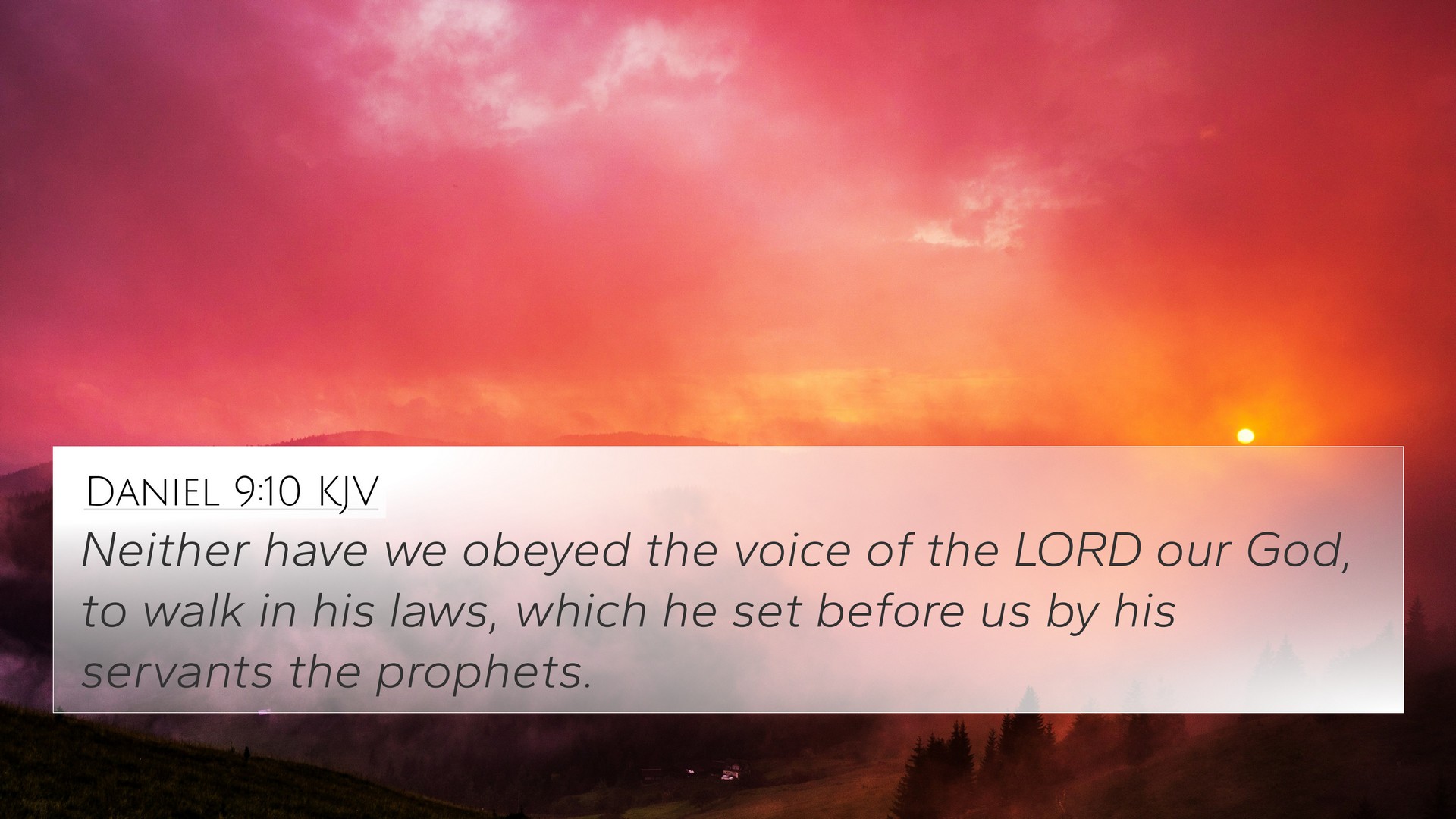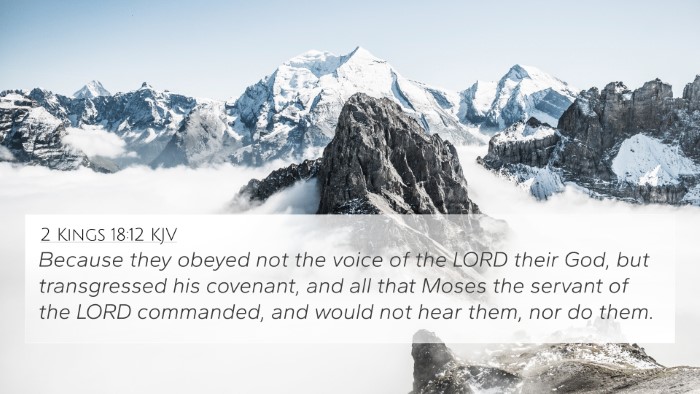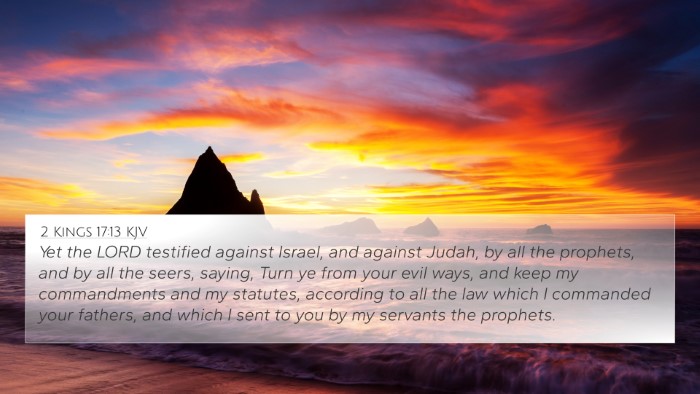Understanding Daniel 9:10
Daniel 9:10 states: "Neither have we obeyed the voice of the LORD our God, to walk in his laws, which he set before us by his servants the prophets." This verse is a part of Daniel's prayer of confession for his people, highlighting a significant theme in the Bible regarding obedience to God's commandments and the consequences of disobedience.
Key Themes and Insights
This verse encapsulates the central themes of sin, repentance, and divine judgment. Daniel acknowledges the failure of Israel to adhere to God's laws as delivered through the prophets. This verse serves as a poignant reminder of the necessity of obedience in the relationship between God and His people.
- Sovereignty of God: Daniel's prayer underscores the belief that God's authority and laws are paramount.
- Human Fallibility: The acknowledgment of disobedience points to the inherent weakness in human nature, which resonates with various biblical texts.
- Prophetic Voice: The role of prophets as intermediaries who convey God's commands stands out, illustrating a connection to other scriptural passages.
Comparative Bible Verse Analysis
To fully grasp the meaning and context of Daniel 9:10, it is beneficial to compare it with other related scriptures:
- 1 Kings 9:9: This passage speaks about the consequences of disobedience and serves to highlight Israel's failure to follow God's laws.
- Isaiah 30:9: Isaiah calls out the rebellious nature of Israel, reflecting the same themes present in Daniel's confession.
- Jeremiah 7:24: Jeremiah notes the persistent disobedience of the people, again reinforcing the sinful state that Daniel laments.
- Lamentations 3:40: This encourages self-examination and repentance in light of Israel's failures, akin to Daniel's prayer.
- Hebrews 3:15: Echoing the warnings against disobedience, illustrating the continuity of the theme across the New Testament.
- James 1:22: Encouraging believers to be doers of the word, reflecting the expectations laid out in the laws that Israel failed to follow.
- Matthew 5:19: Addresses the importance of adhering to God's commandments, linking back to Daniel’s confession of neglecting them.
Connections Between Bible Verses
The thematic connections in the Bible reveal a repeated call for obedience and the dire consequences of sin which transcend both the Old and New Testaments. Daniel 9:10 invites readers to engage in deeper theological reflection regarding God's statutes and human compliance.
Cross-Referencing Biblical Texts
In analyzing Daniel 9:10 through the lens of cross-referencing, scholars can employ tools such as a Bible concordance or a cross-reference Bible study guide, which can identify relationships and insights across Scriptures, such as:
- The role of the law in guiding the faithful (Romans 7:12)
- Christ's fulfillment of the law (Matthew 5:17)
- The grace of God in response to human failure (Ephesians 2:8-9)
Scriptural Cross-Referencing Tools
For an effective study, utilizing a Bible cross-reference system can significantly enhance understanding. This can involve:
- Using a Bible Concordance: Helps locate specific verses and their connections to thematic elements.
- Bible Chain References: Linking similar themes throughout different scriptures.
- Citing Comparative Study of Pauline Epistles: To illustrate themes of law and grace in the context of Daniel’s confession.
Inter-Biblical Dialogue
Daniel 9:10 also opens avenues for inter-Biblical dialogue, connecting Old Testament lamentations of sin with New Testament teachings of redemption and reconciliation through Christ. This dialogue underscores the continuity of God's message to humanity about sin, righteousness, and the need for repentance.
Conclusion
In conclusion, Daniel 9:10 serves as a powerful affirmation of the biblical principles of obedience, repentance, and the prophetic call to return to God. The connection between this verse and others enriches one's understanding of the overarching narrative of Scripture. Scholars and believers alike can benefit from embracing cross-referencing methods to explore the vast interconnections among biblical texts.








